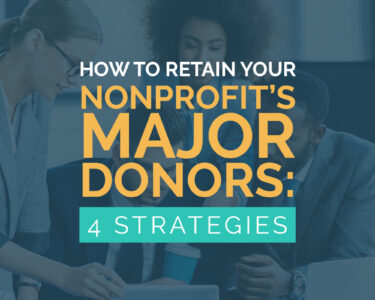International grantmaking can be an efficient and fruitful use of charitable assets. Private foundations and other charitable organizations are uniquely situated to make significant impacts on poverty, health, education, the environment, and other important causes around the globe. Often, grants can have a larger impact in foreign countries than in the United States. However, grantmakers must navigate a sometimes complex regulatory scheme to ensure funds are received by the appropriate parties and are made in compliance with the law. Understanding these challenges is crucial for any organization looking to extend its philanthropic reach across borders.
Expenditure Responsibility
For U.S.-based nonprofits, the starting point in international grantmaking is compliance with the Internal Revenue Code and relevant U.S. Treasury Regulations. The law requires that private foundations exert all reasonable efforts and establish adequate procedures:
- to see that grants are spent only for the purpose(s) for which they are made;
- to obtain full and complete reports from the grantee organization on how the funds are spent; and
- to make full and detailed reports on such grant expenditures.
These rules, known as “expenditure responsibility” rules, apply to grants made to foreign organizations who have not received a determination letter from the IRS recognizing them as a qualified 501(c)(3) public charity.
Generally, expenditure responsibility includes a pre-grant inquiry, securing certain commitments by the potential grantee (such as requiring the grantee to submit periodic reports to the grantor over the course of the grant period), and assurances that funds will be repaid or returned if unused or diverted for a use not specified in the grant itself. Additional rules may apply if the grant qualifies as a program-related investment.
Expenditure responsibility also requires that each grant be made subject to a written grant agreement signed by an officer, director, trustee, or person in a similar position, of the grantee organization.
Where a grantmaker does not follow expenditure responsibility rules, grants are at risk of becoming taxable expenditures subject to certain excise taxes imposed not only on the private foundation itself but also on each officer, director, or key employee who knowingly and willfully agreed to such expenditure.
Equivalency Determinations
Alternatively, where the grantee does not have a determination letter from the IRS, private foundations can avoid the expenditure responsibility rules if they make a good faith determination that the foreign grantee qualifies as public charity. In such cases, the grant will be considered a “qualifying distribution” for tax purposes and not subject to expenditure responsibility rules.
Such “good faith determinations” are known as equivalency determinations. An equivalency determination can be made where the grantmaker:
- reasonably believes the grantee qualifies as a 501(c)(3) public charity;
- makes the grant for charitable purposes; and
- where the grant is not a transfer of assets pursuant to a liquidation, merger, redemption, recapitalization, or other adjustment, organization, or reorganization of the grantmaker.
Further, the private foundation will need to obtain written advice by a qualified tax practitioner (such as a CPA or lawyer) concluding that the foreign grantee qualifies as a public charity eligible to receive such grant.
Anti-Terrorism Measures
In addition to the tax rules, international grantmaking must comply with U.S. anti-terrorism measures. Anti-terrorism measures prohibit U.S. individuals and organizations from providing materials or funds to support individuals or organizations involved in terrorism. These measures include OFAC sanctions, Executive Orders, the Specially Designated Nationals List, the Export Administration Regulations List, various federal statutes prohibiting the support of terrorist organizations, and other authorities.
Grantmakers will need to develop a robust due diligence system and vetting procedure for all foreign grantees to ensure that grants are received by the appropriate grantee and are not diverted for improper use.
In some cases, the private foundation will need to obtain an OFAC license to send grants into certain countries or regions. Obtaining an OFAC license takes time, so planning and forethought are crucial. When applying for a license, grantmakers will need to provide specific details regarding the grant amount, type, and purpose. The grantmaker will need to determine where and how grant funds will be sent, who may access and distribute the funds, and establish a plan to keep grants of the hands of sanctioned parties.
Conclusion
International grantmaking is a powerful tool for global change, but it requires careful planning, sometimes rigorous compliance, and thoughtful management. By adhering to legal requirements, conducting throughout due diligence, and structuring grants effectively, grantmakers can maximize their charitable impact across the globe.
_________
Kyler Mejia is an associate (bar admission pending) with Caritas Law Group, P.C. Kyler counsels nonprofit and socially responsible businesses on corporate, trademark, tax, and fundraising matters nationwide and advises donors concerning major gifts. To schedule a consultation, call 602-456-0071 or email us through our contact form.
👇Follow more 👇
👉 bdphone.com
👉 ultraactivation.com
👉 trainingreferral.com
👉 shaplafood.com
👉 bangladeshi.help
👉 www.forexdhaka.com
👉 uncommunication.com
👉 ultra-sim.com
👉 forexdhaka.com
👉 ultrafxfund.com
👉 ultractivation.com
👉 bdphoneonline.com




